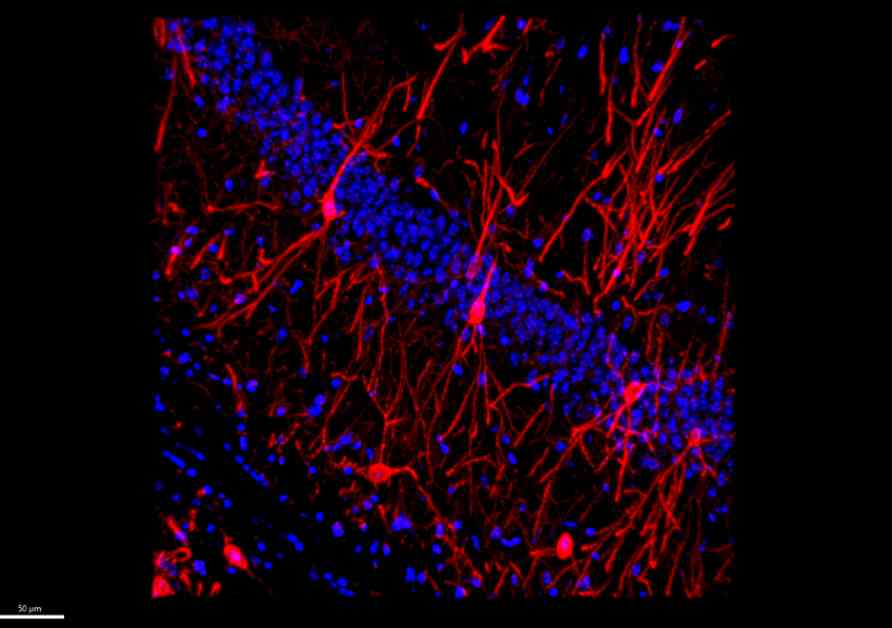In France, 900,000 people suffer from Alzheimer’s disease or another related condition. The risk of developing Alzheimer’s depends on genetic and environmental factors. Several epidemiological studies suggest that regular and moderate caffeine consumption slows cognitive decline associated with aging and the risk of developing Alzheimer’s. In a new study, researchers from Inserm, CHU de Lille, and the University of Lille at the Lille Neuroscience and Cognition research center have made progress in understanding the mechanisms underlying Alzheimer’s disease development. They have shown that the pathological increase of certain receptors in neurons during the disease’s development promotes the loss of synapses and, consequently, the early development of memory problems in an animal model of the disease. Their findings also support the idea of conducting clinical trials to measure the effects of caffeine on the brains of patients in the early stages of the disease. These results have been published in the journal Brain.
Alzheimer’s disease is characterized by memory problems, executive functions, and orientation in time and space. It results from the slow degeneration of neurons, starting in the hippocampus (a crucial brain structure for memory) and spreading to the rest of the brain. Patients with this condition have two types of microscopic brain lesions: senile plaques (or amyloid plaques) and neurofibrillary tangles (or Tau pathology), contributing to neuronal dysfunction and their disappearance.
Previous studies had shown that the expression of certain receptors, called A2A, was increased in the brains of Alzheimer’s patients in the hippocampus. However, the impact of deregulation of these receptors on the development of the disease and associated cognitive problems remained unknown. In a new study, a research team led by Inserm researcher David Blum investigated this question.
The researchers successfully replicated an early increase in the expression of adenosine A2A receptors, as observed in patients’ brains, in a mouse model of Alzheimer’s disease developing amyloid plaques. The goal was to assess the consequences of this increase on the disease and describe the mechanisms involved.
Their research results show that the increase in A2A receptors promotes the loss of synapses in the hippocampus of «Alzheimer’s mice.» This results in the early onset of memory problems in animals. The scientists then demonstrated that dysfunction in certain brain cells, microglial cells, partly responsible for the brain inflammation observed in the disease, could be involved in the loss of synapses in response to an increase in A2A receptors. Similar mechanisms had previously been described by the team in another model of the disease developing Tau lesions.
«These results suggest that the increase in A2A receptor expression alters the relationship between neurons and microglial cells. This alteration could be the cause of a cascade of effects leading to the development of memory problems observed,» explains Émilie Faivre, co-last author of the study, a researcher at the Lille Neuroscience and Cognition research center (Inserm/University of Lille/CHU de Lille).
Caffeine: an interesting treatment option to prevent cognitive decline early on? Several studies have suggested that regular and moderate caffeine consumption (equivalent to 2 to 4 cups of coffee per day) can slow age-related cognitive decline and the risk of developing Alzheimer’s disease.
In 2016, the same research team described one of the mechanisms by which caffeine could have this beneficial effect in animals, reducing cognitive problems associated with Alzheimer’s disease. The scientists showed that the effects of caffeine were related to its ability to block the activity of adenosine A2A receptors, the same receptors whose expression is abnormally increased in the brains of people with Alzheimer’s disease.
«By describing, in our new study, the mechanism by which the pathological increase in A2A receptor expression leads to a cascade of effects resulting in an aggravation of memory problems, we confirm the interest of therapeutic approaches that could act on this target. We once again highlight the interest in testing caffeine in a clinical trial on patients with early forms of the disease. By blocking these A2A receptors, whose activity is increased in patients, this molecule could prevent the development of memory problems and other cognitive and behavioral symptoms,» says David Blum, Inserm research director and co-last author of the study.
A phase 3 clinical trial, led by CHU de Lille, is currently underway. Its aim is to evaluate the effect of caffeine on the cognitive functions of patients with early to moderate forms of Alzheimer’s disease.




















